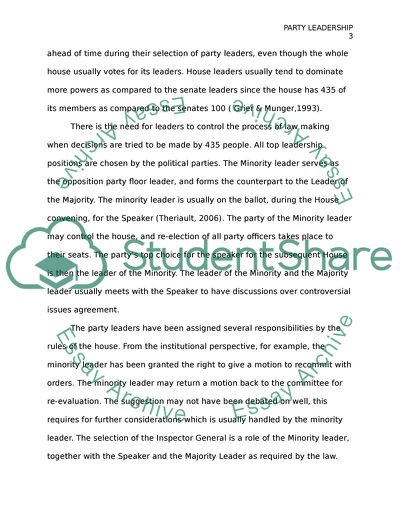Cite this document
(Roles of Party Leadership in the House of Representatives Coursework Example | Topics and Well Written Essays - 3000 words, n.d.)
Roles of Party Leadership in the House of Representatives Coursework Example | Topics and Well Written Essays - 3000 words. https://studentshare.org/politics/1876240-what-role-does-the-party-leadership-play-in-the-house-of-representatives
Roles of Party Leadership in the House of Representatives Coursework Example | Topics and Well Written Essays - 3000 words. https://studentshare.org/politics/1876240-what-role-does-the-party-leadership-play-in-the-house-of-representatives
(Roles of Party Leadership in the House of Representatives Coursework Example | Topics and Well Written Essays - 3000 Words)
Roles of Party Leadership in the House of Representatives Coursework Example | Topics and Well Written Essays - 3000 Words. https://studentshare.org/politics/1876240-what-role-does-the-party-leadership-play-in-the-house-of-representatives.
Roles of Party Leadership in the House of Representatives Coursework Example | Topics and Well Written Essays - 3000 Words. https://studentshare.org/politics/1876240-what-role-does-the-party-leadership-play-in-the-house-of-representatives.
“Roles of Party Leadership in the House of Representatives Coursework Example | Topics and Well Written Essays - 3000 Words”. https://studentshare.org/politics/1876240-what-role-does-the-party-leadership-play-in-the-house-of-representatives.


